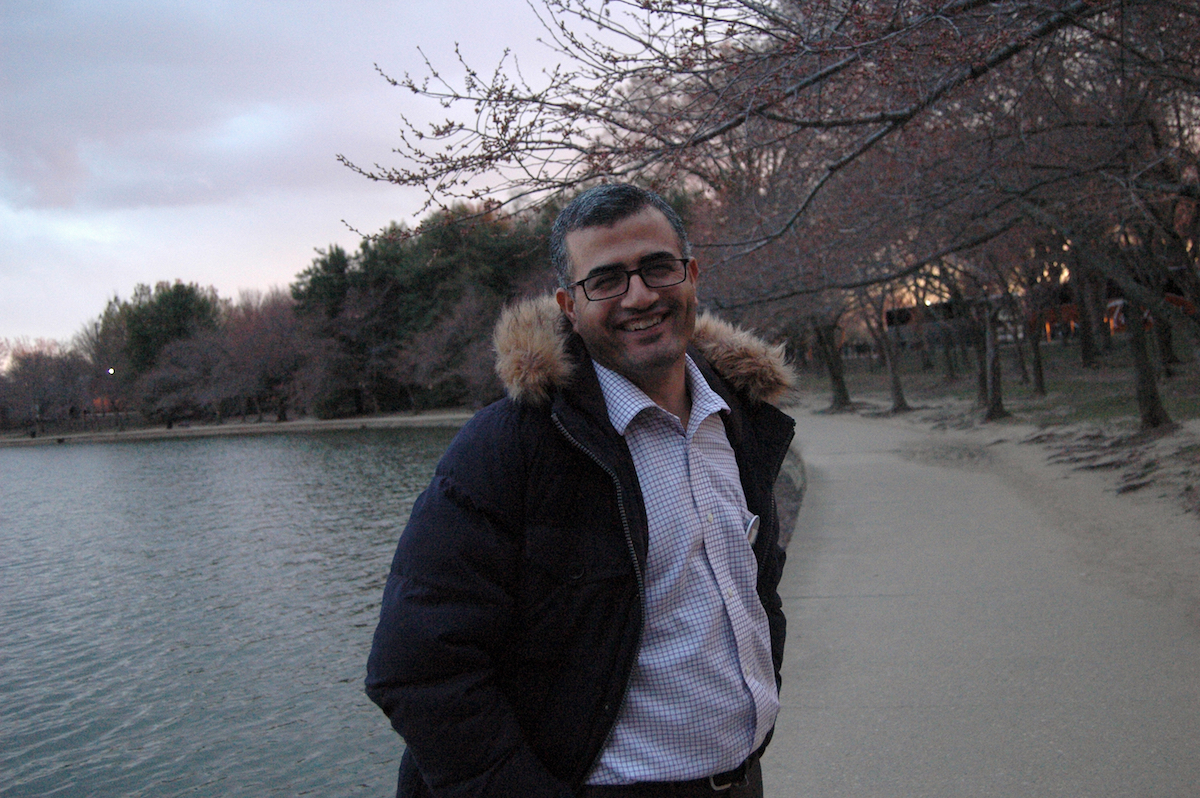

Nora Barrows-Friedman Activism and BDS Beat
The global campaign to pressure technology giant HP – also known as Hewlett-Packard – to drop its Israel contracts recently won an important victory.
During its executive council meeting last month, Unite the Union resolved to end purchases of HP products and replace its existing products with new ones, according to the Palestinian BDS National Committee.
Unite the Union is the second largest British and Irish trade union. It boasts more than 1 million members, including more than 100 members of the British House of Commons and others in the European Parliament.
“Solidarity with the Palestinian freedom struggle is an essential part of building a just world,” stated union member Joseph Bleach.
“While Israel escalates its occupation, apartheid and colonization against the Palestinian people, Hewlett Packard companies profiteer from this grave violation of international law and Palestinian human rights,” Bleach added.
HP has long been a focus of activists because its businesses have supplied the Israeli military with racial profiling technology for its checkpoints restricting the movement of Palestinians in the occupied West Bank.
Israel also uses HP technology to maintain a population database that it uses to enforce its system of segregation, and HP products are used to support infrastructure in illegal Jewish-only settlements in the occupied West Bank.
Unite’s move follows that of Federatie Nederlandse Vakbeweging, Netherland’s largest trade union, which voted to spike HP from its partnerships in April.
Last year, Dublin, Ireland became the first European capital city to endorse the Palestinian call for boycott, divestment and sanctions and committed the city to discontinue contracts with HP and with its subsidiary, DXC.
In June 2018, the Students Federation of India, with more than 4 million members, passed a resolution endorsing the BDS movement and also joined the Boycott HP campaign.
Dozens of US churches have pledged to boycott HP products.
“Keep this factory shut”
Commemorating five years since Israel’s 2014 attacks on Gaza, which killed more than 2,200 Palestinians including 550 children, activists in the UK held a three-day protest on the roof of the Israeli-owned Elbit-Ferranti arms manufacturer building in Oldham, near Manchester.
They demanded that the UK government enact an arms embargo against the company as well as close Israel’s UK-based Elbit factories.
The demonstration effectively shut down the factory’s operations for two days, activists say.
In Sandwich, Kent, protesters “blockaded gates to Elbit’s purpose-built Instro Precision factory. They also spray-painted messages on the windows and a door,” reports The Canary.
Elbit has supplied white phosphorus munitions and drones that have been used during Israeli attacks on Gaza.
Elbit also manufactures cluster weapons for the Israeli army, helping it circumvent an international ban.
In January, Elbit was awarded a $333 million contract to supply the Israeli military with ammunition.
“We’re trying to keep this factory shut so they can’t make things which kill innocent civilians,” said Adie Mormech of Manchester Palestine Action.
“We demand a two-way arms embargo between the UK and Israel so that no more death can be inflicted on the Palestinian people that the UK or Israeli government can profit from,” Mormech added.
This is not the first time activists have shut down Elbit’s production.
Four years ago, protesters occupied the roof of several Elbit-owned factories across the UK, halting production inside for several days.
In 2017, five protesters were arrested after another roof demonstration at UAV Engines, a subsidiary of Elbit, but the charges were eventually dropped.
That was the fourth time in three years that charges against protesters had been dropped by UAV Engines.
Activist Huda Ammori told the Guardian that “not once has it ever gone to trial because Elbit is simply unwilling to give any evidence or to be put on the stand or questioned about their arms deals and the legality of their arms deals, because that is our defense.”
UK academic association supports BDS
Also in the UK, members of the British Society for Middle Eastern Studies (BRISMES) last month voted to endorse the academic boycott of Israeli institutions.
The Palestinian Campaign for the Academic and Cultural Boycott of Israel (PACBI) said BRISMES’ vote was “a beautiful act of effective solidarity.”
“BRISMES joins a growing number of academic societies that are taking a stand for Palestinian rights by refusing to be complicit in Israel’s grave violations of international law,” PACBI said on 24 June.
However, the leadership of the association has moved to sabotage the outcome of the pro-boycott motion.
BRISMES officers posted a notice on the society’s website that it “has not endorsed the academic boycott of Israeli Institutions as advocated by BDS,” noting that even though “the majority of those attending voted in favor of the boycott,” the vote “is not binding on the Society.”
BRISMES issues statement on BDS. https://t.co/ko0eTz7DLS
— BRISMES (@OfficialBrismes) June 27, 2019
Furthermore, BRISMES leadership states that it “deplore[s] all measures … that restrict legitimate academic activity and/or hinder academic cooperation between researchers within and outside the region.”
BRISMES failed to mention that Palestinian scholars, academics and students remain heavily restricted and even banned from accessing their rights to education and entry into institutions due to Israel’s occupation and segregationist policies.
It also ignores the role that Israeli academic institutions play in supporting and maintaining Israel’s military occupation, apartheid systems and weapons manufacturing.
Following the announcement that BRISMES’ officers denounced its members’ support for BDS, academics have been organizing to hold the leadership accountable.
Scholar and professor Laleh Khalili pulled out of an invitation to give the annual BRISMES lecture, citing her shock at the “recent shenanigans” of “a small and unauthorized group of self-appointed guardians of a politics of apathy.”
Society members, alumni and potential members sent an open letter to BRISMES officers demanding they respect the outcome of the academic boycott motion and amend the website to reflect the vote “and the views of the Society’s members.”




